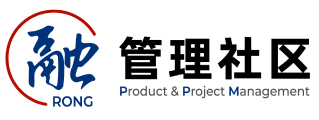PMs Lead With Purpose, Not Process 项目经理以结果导向,而不是过程导向
版权声明
我们非常重视原创文章,为尊重知识产权并避免潜在的版权问题,我们在此提供文章的摘要供您初步了解。如果您想要查阅更为详尽的内容,访问作者的公众号页面获取完整文章。
The article begins with a hard truth directed at project managers: not everyone loves process as much as they do. The author challenges project managers to embrace this fact and consider how it impacts their work and interactions with others. Process, while valuable to project managers, who dream in workflow diagrams and value structure, may not be as appealing or understandable to those they work with.
Emphasizing the importance of process should not be the leading approach when managing projects. The temptation to dive into technical aspects of project management might not be well received in all contexts, especially in volunteer or non-profit settings where resources are limited and the understanding of formal project management processes may be lacking. The author suggests using a different tactic that centers around purpose rather than process.
When planning and initiating projects, the author recommends leading with questions that get to the heart of what the project is about and what success looks like, capturing ideas without judgment. Instead of focusing on processes, the facilitator should guide the discussion, encouraging exploration of ideas and capturing the group's understanding.
The article describes how the author facilitates discussions, always with a process in mind but without making it overt. The focus is on clarity of purpose, which helps in creating insight and delivering value. While structure organizes the facilitator's thoughts, it remains in the background, allowing the group's discussion to flow naturally.
Ultimately, what matters most is the project's purpose. Keeping process in the background allows the facilitator to extract and highlight the essential parts of the discussion, leading to a clear understanding and actionable results. This principle applies not only to volunteer efforts but also to the author's work with corporate clients. The value delivered is maximized when purpose and meaning are foregrounded, and process remains a quiet, guiding principle.
In conclusion, the author wishes that readers, particularly project managers, find value in a purpose-driven approach to their work, keeping process as a useful but not overwhelming tool.
制造业真敏捷圈


白皮书上线









